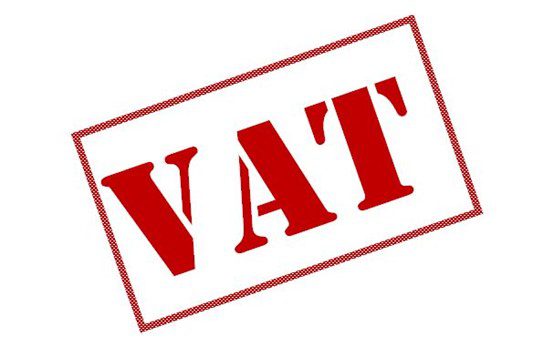As a foreign employer in China, resolving a labor dispute with an employee can be a real troublesome. Therefore, it is paramount to design a well-crafted staff manual as proof that the company adheres to China’s labor law.
Learn about China’s Labour Law 101: Hiring & Firing in our previous write-up.
Read more on China’s employee handbook and why it is important in running your business!
What is a well-crafted employee handbook like?
A well-designed employee handbook clearly reflects the standard practices and policies of the company. A company that prepares and distributes a handbook to its employees just shows that it has sound policies and follows China’s labor laws accordingly.
Remember that both parties, employer-employee, cannot sue each other directly in the People’s Court in China. They have to go through the Labour Dispute Arbitration Committee which will arbitrate the case and issue an arbitration award. With this, presenting a clear and concise rule book can add merit to a lawsuit either in defense of the company or the employee.
Things to consider:
Reasonable length, not too short and not too long
The length of the handbook must not be too short because usually, the court looks into further explanations to back up a certain rule. On the other hand, it must not be too long as it would make it even more difficult for HR to supervise the rules.
Distinguish between minor and major violation or breach
In terms of violating company policies, employees must know what to expect. For instance, a breach of confidentiality requires major penalties. On the other hand, it is unreasonable to impose immediate dismissal to an employee who just showed up late. But it is also important to clearly indicate the number of warnings that constitutes a major disciplinary action.
It must be comprehensive and specific
Certainly, an employee handbook is intended for indicating detailed information regarding the employee’s remuneration, incentives, calculation of paid leaves, training-related information, medical benefits, tax deductions, and social insurance.
China-centric rules and regulations
Employee handbooks in China are very localized, which sets it apart from other countries. First of all, there is no difference in how China treats big or small companies. Therefore, in China’s employer rules and regulations, there is no such thing as de minimis exception such as the one existing in the U.S. and most of Europe.
On top of that, employee rules and practices in China vary from one city to another. For example, if a foreign employer has offices both in Beijing and Shanghai, their handbook should match the set of rules in these two cities, respectively.
It must undergo timely review
A good employee handbook contains the implementation of China’s labor laws and for this matter, a timely review is needed for changing circumstances within the scope of the law. Compliance with the labor law mandates any lawyer in China to perform the task of reviewing labor-related conditions and counter checking whether the company remains updated on the country’s employment rules and regulations.
Furthermore, a lawyer can review the employer’s HR program and the employee’s situation to determine any conflict in the employment contract.
What not to include?
There are some provisions that should not be included in the handbook for obvious reasons. It cannot include provisions that violate basic human rights or something that represents ambiguity. It must not also exclude or leave out any provisions covering the employee’s work contract.
Moreover, there is a divergence of China’s national and local laws that could appear vague because they might be difficult to summarize.
8 benefits of an employee handbook
For apparent reasons mentioned earlier, the employee’s handbook is necessary to avoid complications in any employer-employee legal disputes. But besides that, there are some other meaningful reasons which include the following:
1. Formalities
The handbook simply formalizes the entire policy and procedures of a certain company. It details the company’s management system, corporate culture, and other related procedures in solving problems.
It is safe to say that a company without a handbook does not have a professional standard or is lacking clear protocols with regards to their employee’s actions.
2. Evidence in Court
It serves as hard evidence for any shortcomings from the employer or employee side. Furthermore, it protects the business from potentially getting a serious legal liability for any illegal acts or false accusations by a conflicted employee.
3. Proof of employee conduct
In relation to the above mentioned, the employee handbook outlines the ethical conduct policy of the company. Therefore, it can assist the employer in preventing misconduct from its employees.
4. Requirement for safety
The basic interest of the employee is of the utmost importance for employers. Since a handbook contains all the formalities when it comes to work-related circumstances, it can serve as a groundwork for maintaining safety in the workplace.
5. Clear ground for employee termination
The handbook also provides a clear explanation of the terms of employee termination. In an event where the employee does not follow company policies, he or she cannot deny the termination agreements made under the employee handbook.
6. Promotion of common growth and performance
Having a standardized handbook for employees entails common obedience to the core policies of the company. In this case, it encourages efficiency and growth performance in the company. There is nothing much better than a great employer-employee relationship where everybody is following the rules set for the benefit of all.
7. A clear statement of incentives
The handbook enables the business to clarify personal incentives to employees. It also includes details on employment recruitment, job promotion, training development and of course, labor compensation or the salary. Therefore, it encourages efficiency and transparency where an employee can review the handbook for any questions related to these aspects.
8. Identifying and solving company problems
Where there is a common set of rules to follow, an employer can determine gaps and improve on problems that arise from a situation. Wherefore, the employee handbook can be revised and tailored in a way that is suitable for achieving a win-win situation.
Key takeaways
China’s employment law does not specify the necessary sections of a good employee handbook unlike in labor contracts. It is up to the company to determine what applies.
Nevertheless, here are the must-include contents of an employee handbook:
- Disciplinary standards and measures
- Probationary conditions for new recruits
- Performance assessment criteria
- Safety and security measures
- Working period and overtime
- Public holidays, leaves and vacations
- Salary compensation
- Confidentiality in the workplace
- Social insurance and benefits
- Company culture
Company culture
Introducing the culture of the company is a great way to guide newcomers first hand. It is important that they know what kind of business they are in and the corporate values they should observe. As a final tip, incorporating company culture serves as a welcoming rule to new employees.If you are interested to know more about business regulations and useful tips in China, contact our team for inquiries and follow us on social media to get the latest news!
Our experienced team has the necessary expertise and the know-how to support you with your business – have a look at the services we offer.
See how much salary you receive after tax and check your company value without leaving WeChat!
Also, our Mini Program can estimate the salary in your industry, for your experience level and position. A huge help for salary negotiations!







